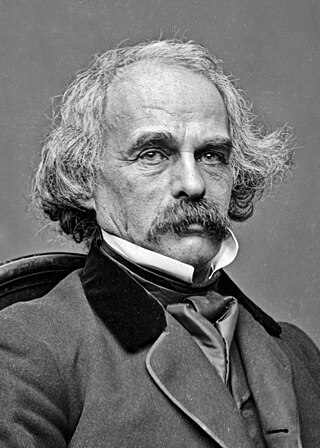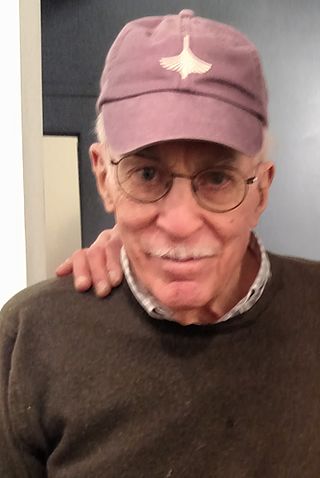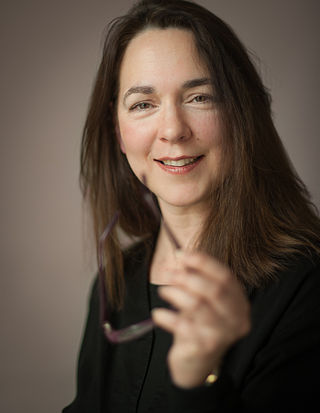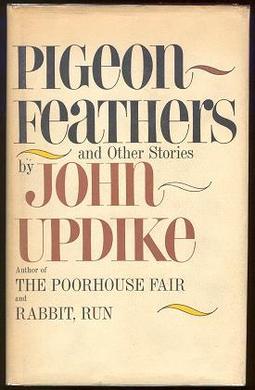Related Research Articles

John Hoyer Updike was an American novelist, poet, short-story writer, art critic, and literary critic. One of only four writers to win the Pulitzer Prize for Fiction more than once, Updike published more than twenty novels, more than a dozen short-story collections, as well as poetry, art and literary criticism and children's books during his career.

Nathaniel Hawthorne was an American novelist and short story writer. His works often focus on history, morality, and religion.

Roger Angell was an American essayist known for his writing on sports, especially baseball. He was a regular contributor to The New Yorker and was its chief fiction editor for many years. He wrote numerous works of fiction, non-fiction, and criticism, and for many years wrote an annual Christmas poem for The New Yorker.

Gish Jen is a contemporary American writer and speaker.

Richard Ford is an American novelist and short story author, and writer of a series of novels featuring the character Frank Bascombe.

John Henry O'Hara was one of America's most prolific writers of short stories, credited with helping to invent The New Yorker magazine short story style. He became a best-selling novelist before the age of 30 with Appointment in Samarra and BUtterfield 8. While O'Hara's legacy as a writer is debated, his work was praised by such contemporaries as Ernest Hemingway and F. Scott Fitzgerald, and his champions rank him highly among the major under-appreciated American writers of the 20th century. Few college students educated after O'Hara's death in 1970 have discovered him, chiefly because he refused to allow his work to be reprinted in anthologies used to teach literature at the college level.

John William Cheever was an American short story writer and novelist. He is sometimes called "the Chekhov of the suburbs". His fiction is mostly set in the Upper East Side of Manhattan; the Westchester suburbs; old New England villages based on various South Shore towns around Quincy, Massachusetts, where he was born; and Italy, especially Rome. His short stories included "The Enormous Radio", "Goodbye, My Brother", "The Five-Forty-Eight", "The Country Husband", and "The Swimmer", and he also wrote five novels: The Wapshot Chronicle , The Wapshot Scandal, Bullet Park (1969), Falconer (1977) and a novella Oh What a Paradise It Seems (1982).
Thomas Douglas Jones was an American writer, primarily of short stories.

Lorrie Moore is an American writer, critic, and essayist. She is best known for her short stories, some of which have won major awards. Since 1984, she has also taught creative writing.

Andre Jules Dubus II was an American writer of short stories, novels, and essays.
“A Trillion Feet of Gas” is a work of short fiction by John Updike first appearing in The New Yorker on December 8, 1956. The story was collected The Same Door (1959), published by Alfred A. Knopf.

The Centaur is a novel by John Updike, published by Alfred A. Knopf in 1963. It won the U.S. National Book Award for Fiction. Portions of the novel first appeared in Esquire and The New Yorker.

Too Far to Go: The Maples Stories is a collection of 12 works of short fiction by John Updike. The stories first appeared in The New Yorker and were included in the volume published by Fawcett Publications in 1979

Couples is a 1968 novel by American author John Updike.

Pigeon Feathers and Other Stories is a collection of 19 works of short fiction by John Updike. The volume is Updike's second collection of short stories, published by Alfred A. Knopf in 1962. It includes the stories "Wife-Wooing" and "A&P ", which have both been anthologized.

The Same Door is a collection of 16 works of short fiction by John Updike published in 1959 by Alfred A. Knopf. The stories in the volume first appeared separately in The New Yorker, some in a slightly different form than in the collection. The Same Door is Updike's first volume of short stories.

Olinger Stories: A Selection is a collection of 11 works of short fiction by John Updike published by Vintage Books in 1964.

The Housebreaker of Shady Hill and Other Stories is a collection of short fiction by John Cheever. Composed of eight short stories, the volume was first published by Harper & Bros. in 1958. Reissued by Hillman/MacFadden in 1961, the works are included in The Stories of John Cheever (1978). The works were originally published individually in The New Yorker.
Elizabeth Updike Cobblah is an American art teacher and ceramicist, painter, and illustrator in Massachusetts. She is the eldest child of author John Updike, and was the model for several of his characters. She is married to Tete Cobblah.

Linda Grace Hoyer Updike (1904–1989) was an American writer from Plowville, Pennsylvania. She was the mother of writer John Updike and grandmother of writer David Updike. Linda Updike also served as the model for several of her son's characters, including one of the main characters in the novel Of the Farm.
References
- ↑ Jack De Bellis, The John Updike Encyclopedia, (2000), p. 462
- 1 2 Will Broaddus, "Family territory: Updike's son to read from his short story collection in Salem, Salem News, Sep 25, 2009
- 1 2 "David Updike"; goodreads.com
- ↑ Adam Begley, Updike (2014)
- ↑ "Contributors David Updike; New Yorker". The New Yorker . Archived from the original on 2022-08-17. Retrieved 2022-08-07.
- ↑ David Updike: About the Author MacMillan
- 1 2 3 Jim Concannon, "His own man," The Boston Globe, July 21, 2009